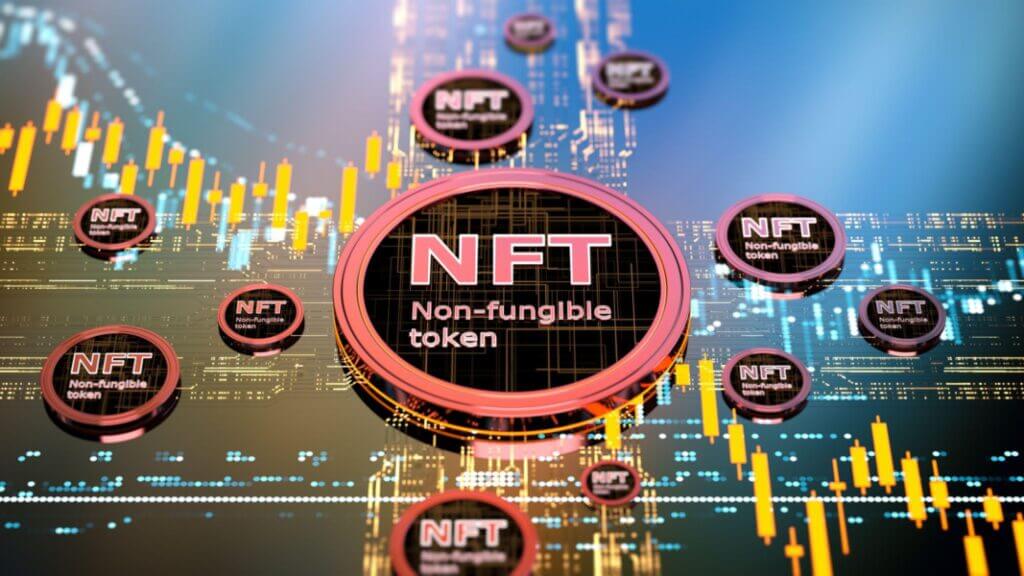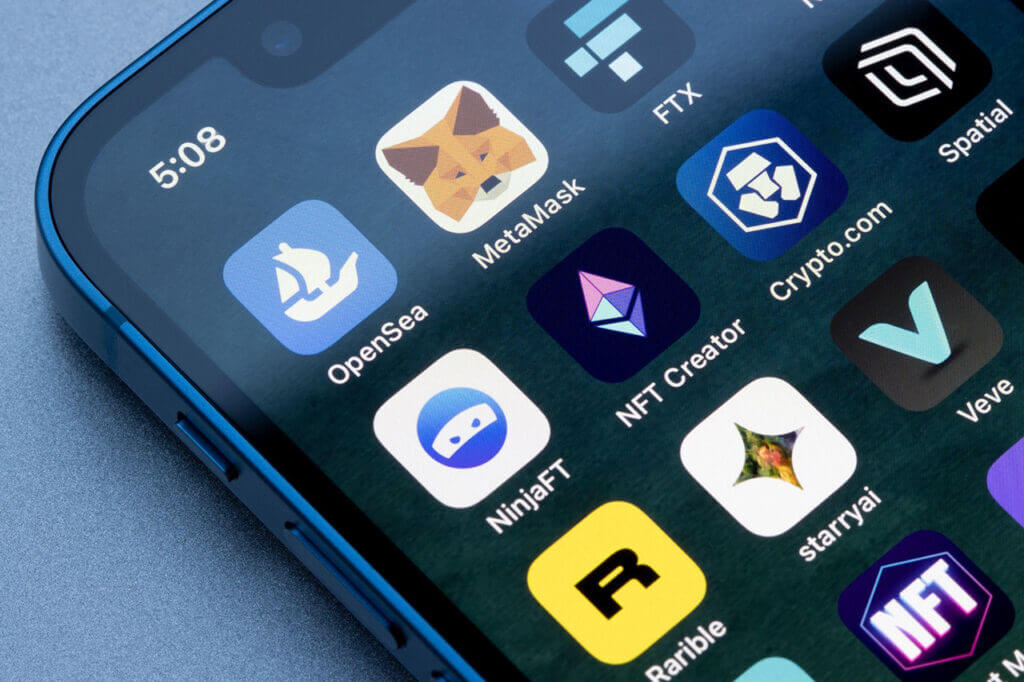Sports’ Tryst With NFTs
- ATMECS – Content Team
The sports industry is growing rapidly. It is not just about competition in physical sport anymore but also in the digital space. The accelerated growth of partnership between sports and digital technologies over the last few years has spawned changes to the market landscape and sports tech ecosystem that were once thought unfathomable.
With the proliferation of e-gaming, betting, and the rise of online broadcasting/streaming (OTT), two major trends are currently emerging in the sports industry: Non-Fungible Tokens (NFTs), which according to Gartner Hype Cycle 2021 is at the Peak of Inflated Expectations, and Blockchain in Sports. A 2022 Sports Industry Outlook Report from Deloitte is optimistic about how blockchain technology will change the way fans interact with their favourite sports and hopes that new types of “collectibles” will lead to new markets for the industry.
In this blog, we would like to take you on a journey of how blockchain is redefining the sports industry especially with respect to Fan Engagement and what it means for the future.
A Quick Overview Of NFTs

Blockchain technology is now widely popular in the sports industry. Most of the time, it is associated with the Initial Coin Offering (ICO), which is a way to encourage transparency and trust in fundraising. But what are NFTs or non-fungible tokens?
The basic idea behind an NFT is that a token is used to represent ownership of unique items. The token, in other words, is a non-interchangeable unit of data stored on a blockchain, think of this as a digital ledger which retains history of ownership and value, that can be sold and traded. The NFT data units may be associated with digital files of art, photos, games, videos, and audio.
While the Quantum NFT created by digital artist Kevin McCoy in 2014 is credited as the first NFT to be minted as a “monetized graphic”, the CryptoKitties, a blockchain based virtual game, NFTs created the first use case for wider adoption. It allowed people to trade and breed digital cats stored on smart contracts in the Ethereum blockchain.
Much of Cryptokitties success is attributed with their ability to conform to the ERC-721 standard, explicitly developed for non-fungible tokens from the start. It allows users to store unique and identifiable data about any item that can be traded or sold in digital space, so ownership and movements are tracked through one smart contract.
The Rise Of Fan Tokens
The recent rise of fan tokens in the sports industry has also become a new trend as more teams and clubs adopt blockchain technology as a mainstream method for payment or transactions with fans. For example, a few European Soccer Clubs use fan tokens to reward their fans using blockchain technology and cryptocurrencies. Unlike the Non Fungible Token, Fan Tokens are fungible or interchangeable. Owners of Fan tokens can exchange them for services provided by a sports team or club.
Fan tokens are digital assets that can interact with club ecosystems, including voting on fan polls and earning rewards. You can also use them off-platform to buy merchandise, match tickets, and other club-related content. Fan tokens are at times referred to as sports cryptocurrencies or utility tokens. Fan tokenization gives sports teams a way to monetize their vast global fan bases while creating a more direct relationship with fans than they’ve ever had before.
Current Marketplaces Of NFT In the Sports Industry
Now that you’re familiar with the NFT landscape, it’s time to dive right into its heart: marketplaces.
These marketplaces are where the majority of NFT transactions happen. They’re one of the most critical puzzle pieces because they’re where all the action happens.
When considering buying your first NFT, you should research each marketplace to determine which one is best. Here’s a list of a few top NFT marketplaces:

OpenSea.io
It features CryptoPunks, Decentraland items, Cryptovoxels assets, Axie Infinity items, etc. OpenSea offers a variety of non-fungible tokens—from art to censorship-resistant domains to virtual worlds to collectibles. It supports ERC721 and ERC1155 assets.
Rarible.com
This community-owned NFT marketplace rewards users who sell or buy unique digital assets on the market by distributing 75,000 RARI every week to active users.
Foundation
Foundation is a platform built to help digital artists and crypto-collectors connect and share ideas. It is a place where you can buy and sell artwork from top artists.
SuperRare
SuperRare is an online marketplace for people to buy and sell authentically created digital artworks, the ownership of which is recorded on the blockchain. It focuses on digital art pieces made by artists they personally select.
AsyncArt
Asynchronous Art is a way to purchase digital art that evolves. Buyers get to choose how the art is transformed through an app that updates the piece.
KnownOrigin
A curated gallery of exclusive Digital Artworks ranging from limited collectible editions to open prints and artist editions on blockchain technology using Ethereum smart contracts and ERC721 tokens. Currently, it features work from over 100 artists, including Joe Hargreaves, Quibe, and Ben Giles.
Nifty Gateway
Nifty Gateway is an NFT marketplace that sells artworks from digital artists, brands, and celebrities. It is a sister company of Gemini (a licensed Cryptocurrency exchange and custodian).
NBA Top Shot
The National Basketball Association (NBA) in collaboration with Dapper Labs created NBA Top Shot, a blockchain-based platform that allows fans to buy, sell and trade numbered versions of specific, officially-licensed video highlights. The platform allows users to transact with cryptocurrency and conventional credit based payments. Dapper Labs has also forged a partnership with the National Football Association (NFL) to launch a similar platform for NFL content called NFL ALL DAY.
Advantage Of Sport NFT Marketplaces
Unlike traditional sports memorabilia, digital collectibles are not subject to physical wear and tear. You can store and exchange safely in crypto wallets.
The digital nature of NFTs also makes them easier and cheaper to trade.
NFTs are unique digital collectibles. They are authenticated on a blockchain, making them effectively impossible to counterfeit. It ensures that they retain their value over time.
NFTs also offer more liquidity than traditional sports memorabilia. An established marketplace for NFTs is where collectors can buy and sell these assets.
Because the NFT market is still relatively small, there is plenty of room for growth and for-profits for early adopters who purchase these assets now – especially if you compare the current market with the size of the $370 billion-a-year global sports industry.
Outlook Of Future Of NFTs In Sports
One of the most prominent use-cases for blockchain technology is to verify digital assets. There will be more and more non-fungible tokens in various industries such as supply chain, travel insurance, sports and entertainment.
Ticketing is one area where NFTs can add a lot of value. Ticket fraud is a massive issue in Sports and Entertainment that costs billions of dollars in indemnity every year.
By using NFTs on the blockchain, tickets could be verified at the point of sale, and once they were sold, they could never be duplicated or sold again.
It would make it harder for touts to resell tickets at higher prices when demand outstripped supply.
Some companies are already trying out this concept by creating their own NFTs through Ethereum smart contracts. However, the real test will come when mainstream ticketing companies adopt NFTs, block-chain and cryptocurrencies.
To Wrap Up Things
The sports industries are ripe with opportunities using blockchain, which will be exploited through non-fungible tokens. Leagues, teams and now individual players are embracing personalized NFTs to increase their valuation.
As a result, the industry is steadily embracing this technology and is steering forward without losing any time in minting cryptocurrencies into their payment infrastructures.
As we move forward and explore more applications of Blockchain technology’s inherent properties, it will be even more accessible for the sports industry to evolve using non-fungible tokens (NFTs). We believe the tryst between Sports and NFTs will continue for the foreseeable future.
ATMECS teams are pacing up the changes with their capabilities in minting NFTS at scale and implementing smart contracts – ERC-20, ERC-721 and ERC-1155 – across Blockchain, commercial transactions with Ethereum, integrating Blockchain into existing systems, and distributed applications. Connect with us to know more.



